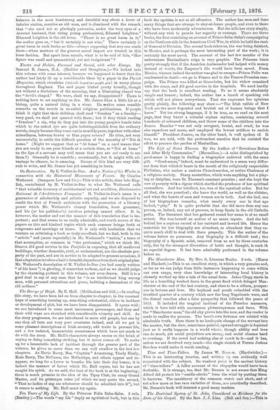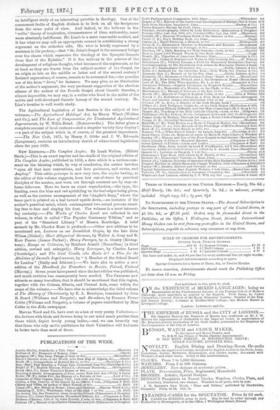an intelligent study of an interesting question in theology. One
of the commonest faults of English divines is to look on all the Scriptures from the same point of view. And indeed, to the believer in the ' scribe' theory of inspiration, circumstances of time, authorship, must seem absolutely indifferent. Mr. Lias's is a more reasonable method, and it has what we may call an appropriate reward in establishing a strong argument on the orthodox side. His view is briefly expressed by a sentence in his preface,—that " St. John's Gospel is the necessary bridge over the chasm which separates the theology of the Synoptic Gospels from that of the Epistles." If it lies midway in the process of the development of religious thought, what becomes of the arguments, as far at least as they are drawn from the subject-matter of the Gospel, for an origin as late as tho middle or latter end of the second century ? Isolated expressions, of course, remain to be accounted for,—the peculiar use of the term " Jews," for instance. We may give, as an illustration of the author's argument, the very pertinent suggestion of the absolute silence of the author of the Fourth Gospel about Gnostic theories, a silence impossible, we may say, in a writer who lived in the midst of the active and well-developed Gnostic heresy of the second century. Mr. Lias's treatise is well worth study.



































 Previous page
Previous page